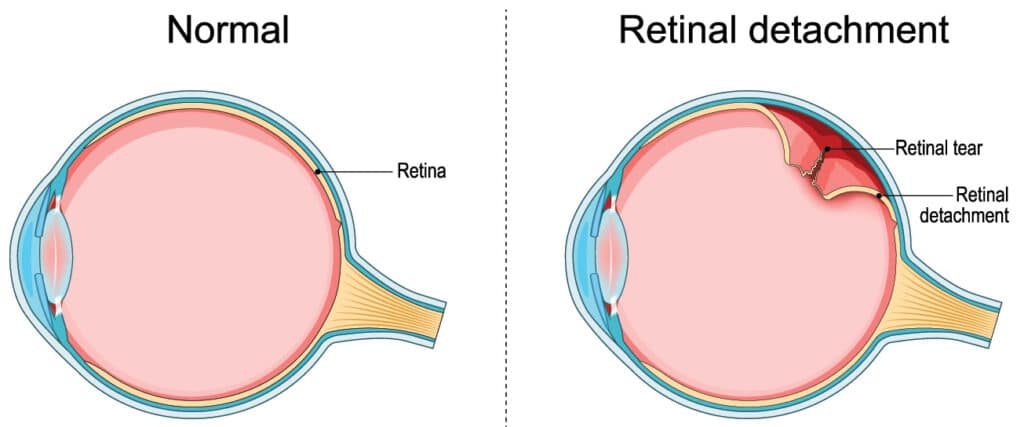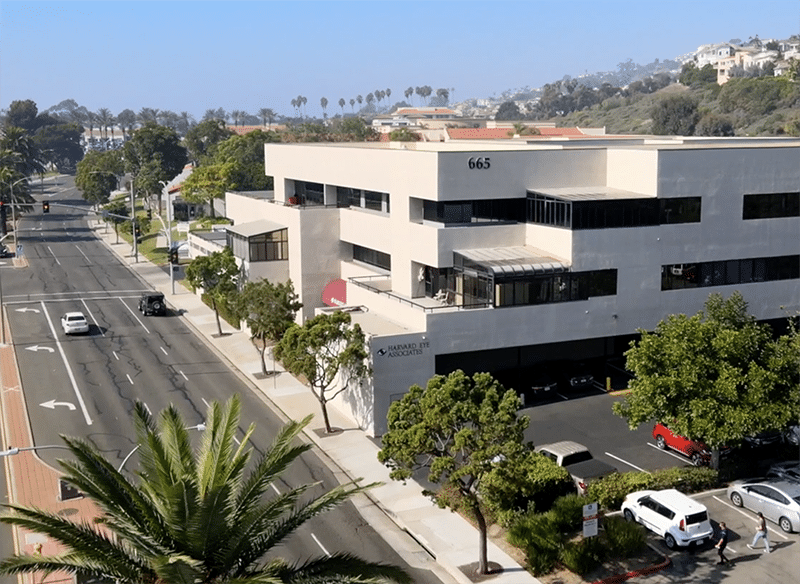Retinal Detachment & Tears
Understanding Retinal Tears and Retinal Detachments
When we are born, the clear vitreous gel that fills the eye is adherent to the inner wall of the eye which is the retina. In time, the gel naturally begins to liquefy and the vitreous begins to separate from the retina in most people. During this process, however, the vitreous can pull and cause a tear in the retina.
If the vitreous continues to pull, the retina can detach like wallpaper falling off a wall. Retinal tears and detachments commonly happen painlessly and spontaneously but can also be caused by any trauma or sudden jolt to the head. Retinal detachments are particularly dangerous because they can cause irreversible vision impairment even despite treatment. In general, more vision is preserved if the retinal tear or detachment is small and treated early.
If a retinal tear is found early, it can be treated with a laser procedure called laser retinopexy and significantly reduce the risk of losing vision from a subsequent retinal detachment. Some retinal detachments can be treated in the clinic with an injection of a gas bubble called a pneumatic retinopexy.
Others may require surgery to reattach the retina using various techniques based on certain characteristics of the detachment. Even in the hands of the best surgeons, 10% of retinal detachments can return due to abnormal scar tissue formation and may require multiple surgeries. Retinal detachments are vision-threatening conditions and require immediate evaluation and treatment.

Symptoms of Retinal Detachment
- New onset of quick flashes of light
- New onset of floaters
- A dark shadow over your field of vision
- No pain
If you have any of these symptoms, see your ophthalmologist immediately.
Risk Factors for Retinal Detachment
A retinal detachment can occur to anyone at any time. However, it is more common in people over the age of 40. Other factors that increase the risk of having a retinal detachment include the following:
- Severe nearsightedness (high myopia)
- Previous retinal tear or detachment
- Cataract surgery
- LASIK surgery
- Any recent eye surgery or procedure
- Eye injury or trauma
- Lattice degeneration of the retina
Retinal Detachment Treatment in Orange County, CA
When a small tear or hole hasn’t progressed to detachment, one of our Orange County retinal detachment specialists can usually perform an outpatient procedure to preserve most of your vision.
This can be done with one of two treatments:
Laser Retinopexy
A special retina laser is used to create burns around the retinal tear effectively walling it off to reduce the risk of it enlarging. This procedure prevents the worsening of the tear—it does not reattach the torn retina.
Cryopexy
The retinal tear and a small area around it can be frozen with a cryo machine. This technique causes a ring of scar tissue around the tear in order to prevent it from progressing to a retinal detachment.
For retinal detachments, the treatment is usually more involved. Depending on certain characteristics of the detachment, the retina can be reattached using various methods:
If you feel that you are experiencing any of the symptoms of retinal detachment, contact Harvard Eye Associates immediately to schedule an eye exam in Laguna Hills, San Clemente, or Orange.




